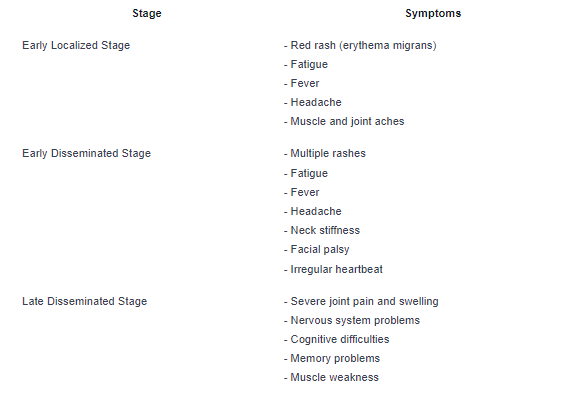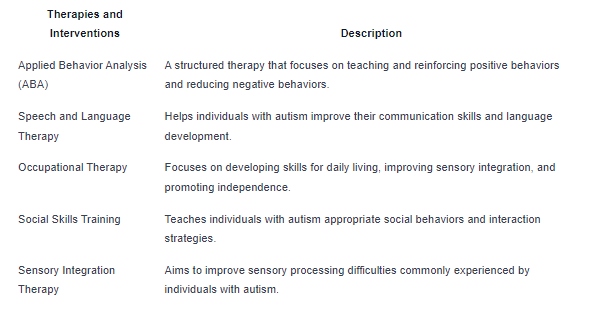Can Lyme Disease Cause Autism?
Debunking the myth: Can Lyme Disease cause Autism? Unraveling the truth behind the connection with scientific research.

Understanding Lyme Disease and Autism
To address the connection between Lyme disease and autism, it's important to first gain a clear understanding of each condition individually. This section provides an overview of Lyme disease, autism, and explores the potential link between the two.
Overview of Lyme Disease
Lyme disease is a bacterial infection primarily transmitted through the bite of infected black-legged ticks. It is caused by the bacterium Borrelia burgdorferi. The disease is most commonly found in areas with dense vegetation, such as forests and grassy areas. Early symptoms of Lyme disease may include fever, fatigue, headache, muscle and joint aches, and swollen lymph nodes. If left untreated, Lyme disease can progress to more severe symptoms, such as joint pain, neurological problems, and heart abnormalities.
Overview of Autism
Autism, or Autism Spectrum Disorder (ASD), is a neurodevelopmental disorder that affects communication, social interaction, and behavior. It is characterized by a wide range of symptoms and varying degrees of impairment. Common signs of autism may include difficulties with social interaction, repetitive behaviors, sensory sensitivities, and challenges with verbal and nonverbal communication. Autism is a lifelong condition, and while there is no known cure, early intervention and appropriate support can greatly improve the quality of life for individuals with autism.
Identifying the Connection
There has been speculation about a potential link between Lyme disease and autism. Some individuals believe that Lyme disease may cause or contribute to the development of autism. However, it's important to note that scientific research has not established a direct causal relationship between the two conditions.
While Lyme disease can have a range of symptoms, including neurological manifestations, there is currently no substantial evidence to support the claim that Lyme disease directly causes autism. Autism is a complex disorder with a multifactorial etiology, involving genetic, environmental, and possibly immunological factors. Researchers continue to explore the underlying causes of autism, but at present, Lyme disease is not considered a known cause of autism.
By understanding the distinct characteristics and etiology of Lyme disease and autism, we can better address the misconceptions surrounding their potential connection. It is crucial to rely on accurate scientific research and consult healthcare professionals for comprehensive information and guidance.
Debunking the Misconceptions
Addressing the Claim: Can Lyme Disease Cause Autism?
In recent years, there has been speculation about a potential link between Lyme disease and autism. Some individuals have claimed that Lyme disease can cause or contribute to the development of autism. However, it is important to separate fact from fiction and explore the scientific research on this matter.
Exploring the Scientific Research
Extensive research has been conducted to investigate the relationship between Lyme disease and autism. The majority of scientific studies have not found any conclusive evidence to support the claim that Lyme disease directly causes autism.
One study published in the Journal of Autism and Developmental Disorders examined the medical records of children diagnosed with autism spectrum disorder (ASD) and found no association between Lyme disease and autism. Another study conducted by the Centers for Disease Control and Prevention (CDC) analyzed data from a large cohort study and also concluded that there is no causal link between Lyme disease and autism.
It is important to note that both Lyme disease and autism are complex medical conditions with distinct causes and symptoms. Lyme disease is caused by the bacterium Borrelia burgdorferi, which is transmitted through the bite of infected ticks. Autism, on the other hand, is a neurodevelopmental disorder characterized by challenges in social interaction, communication, and repetitive behaviors.
While Lyme disease can cause a range of symptoms, including fatigue, joint pain, and neurological manifestations, there is currently no scientific evidence to suggest that it directly leads to the development of autism. Autism is believed to have a multifactorial etiology, with a combination of genetic and environmental factors contributing to its onset.
In summary, the claim that Lyme disease can cause autism is not supported by scientific research. It is important to rely on evidence-based information and consult healthcare professionals for accurate and reliable guidance on both Lyme disease and autism. By understanding the current scientific knowledge, we can debunk the misconceptions surrounding the link between these two conditions and ensure that individuals receive appropriate care and support.
Risk Factors and Precautions
When it comes to understanding the potential connection between Lyme disease and autism, it's important to consider the risk factors associated with each condition and the preventive measures that can be taken.
Understanding the Risk Factors for Autism
Autism is a complex neurodevelopmental disorder that is influenced by a combination of genetic and environmental factors. While the exact cause of autism is still not fully understood, there are certain risk factors that have been identified. These include:
- Genetic factors: Research suggests that certain genes may play a role in the development of autism. Having a family history of autism or other related conditions increases the risk.
- Advanced parental age: Both maternal and paternal age at the time of conception can impact the risk of autism. Studies have shown that parents who are older at the time of conception may have a slightly higher chance of having a child with autism.
- Prenatal factors: Certain prenatal factors, such as maternal infections during pregnancy or exposure to certain medications, have been associated with an increased risk of autism. However, it's important to note that these factors are not the sole cause of autism and the majority of children exposed to them do not develop the condition.
Understanding the risk factors for autism can help identify individuals who may be at a higher risk and may benefit from early intervention and support.
Preventive Measures for Lyme Disease
Lyme disease is an infectious disease caused by the bacterium Borrelia burgdorferi, which is transmitted to humans through the bite of infected black-legged ticks. While there is currently no known preventive measure that directly targets the risk of autism associated with Lyme disease, there are several precautions that can be taken to reduce the risk of acquiring Lyme disease itself. These include:
- Tick avoidance: When spending time in areas where ticks are prevalent, it is important to take precautions to avoid tick bites. This can be done by wearing long-sleeved shirts, long pants, and closed-toe shoes, using insect repellent, and staying on designated trails when hiking.
- Tick checks: After spending time outdoors, thoroughly check your body for ticks, paying close attention to areas such as the scalp, behind the ears, under the arms, and in the groin area. Promptly remove any ticks that are found to reduce the risk of infection.
- Tick control: Taking steps to reduce the tick population in your immediate surroundings can help minimize the risk of tick bites. This can be done by maintaining a well-trimmed lawn, removing leaf litter and tall grasses, and using acaricides (tick-killing chemicals) if necessary.
By understanding the risk factors associated with autism and taking preventive measures to reduce the risk of acquiring Lyme disease, individuals can prioritize their health and well-being. It's important to consult healthcare providers for personalized advice and guidance based on individual circumstances.
Symptoms and Diagnosis
Understanding the symptoms and being able to identify the signs of Lyme disease and autism are essential for accurate diagnosis and appropriate management. In this section, we will explore the symptoms associated with Lyme disease and autism.
Symptoms of Lyme Disease
Lyme disease is caused by the bacterium Borrelia burgdorferi, which is transmitted through the bite of infected ticks. The symptoms of Lyme disease can vary from person to person and may develop in stages. Here are some common symptoms associated with Lyme disease:

It's important to note that not all individuals with Lyme disease will develop the characteristic bull's-eye rash. If you have been exposed to tick habitats and experience any of the symptoms mentioned, it is crucial to seek medical attention for proper evaluation and diagnosis.
Symptoms of Autism
Autism, or autism spectrum disorder (ASD), is a developmental disorder that affects communication, social interaction, and behavior. The symptoms of autism can vary widely, and the severity of symptoms may also differ from person to person. Here are some common signs and symptoms associated with autism:

It's important to remember that autism is a spectrum disorder, and individuals with autism may exhibit a wide range of symptoms, strengths, and challenges. If you suspect that you or your child may have autism, it is recommended to consult with a healthcare professional specializing in autism diagnosis and management.
By understanding the symptoms associated with Lyme disease and autism, individuals and healthcare providers can better identify the signs, initiate appropriate diagnostic evaluations, and provide the necessary support and interventions for those affected by these conditions.
Treatment and Management
When it comes to Lyme disease and autism, understanding the appropriate treatment and management strategies is crucial for individuals affected by these conditions. In this section, we will explore the treatment options for Lyme disease and the therapies and interventions available for autism.
Treatment Options for Lyme Disease
Lyme disease is caused by the bacterium Borrelia burgdorferi and is typically treated with antibiotics. The specific antibiotic regimen prescribed may vary depending on the stage of the disease, the severity of symptoms, and other individual factors. Here is an overview of the commonly used antibiotics for treating Lyme disease:

It's important to note that the duration of antibiotic treatment can vary, ranging from a few weeks to several months, depending on the individual case. The healthcare provider will assess the specific circumstances and determine the most appropriate course of treatment.
In addition to antibiotics, symptom management plays a significant role in the treatment of Lyme disease. Pain relievers, anti-inflammatory medications, and other supportive therapies may be recommended to alleviate symptoms and improve the overall well-being of the patient.
Therapies and Interventions for Autism
Autism is a developmental disorder characterized by challenges in social interaction, communication, and repetitive behaviors. While there is no cure for autism, various therapies and interventions can help individuals with autism manage their symptoms and improve their quality of life.
The specific therapies and interventions used for autism may vary depending on the individual's needs and the severity of their symptoms. Here are some commonly employed approaches:

It's important to remember that each individual with autism may respond differently to therapies and interventions. A personalized approach that considers the unique needs and strengths of the individual is crucial for optimal outcomes. Consulting with healthcare professionals, such as doctors, therapists, and specialists, can help determine the most appropriate treatment plan for individuals with autism.
By understanding the available treatment options for Lyme disease and the therapies and interventions for autism, individuals and their healthcare providers can work together to develop comprehensive management strategies that address the specific needs of each condition.
Seeking Professional Help
When it comes to understanding the complex relationship between Lyme disease and autism, seeking professional help is crucial. Healthcare providers play a vital role in providing accurate information, guidance, and support to individuals and families affected by these conditions. In this section, we will explore the importance of consulting healthcare providers and highlight the available support and resources for Lyme disease and autism.
Importance of Consulting Healthcare Providers
Consulting healthcare providers is essential for accurate diagnosis, treatment, and management of both Lyme disease and autism. These professionals have the expertise and knowledge to guide individuals and families through the complexities associated with these conditions. Here are a few reasons why it's important to seek their guidance:
- Accurate Diagnosis: Healthcare providers can conduct thorough evaluations, taking into account medical history, symptoms, and diagnostic tests, to determine whether an individual has Lyme disease, autism, or both. Accurate diagnosis is crucial for appropriate treatment planning.
- Treatment Options: Healthcare providers can recommend and provide appropriate treatment options based on the specific needs of the individual. For Lyme disease, this may include antibiotic therapy, while for autism, treatment plans may involve various therapies and interventions tailored to the individual's developmental needs.
- Monitoring and Management: Regular check-ups with healthcare providers allow for ongoing monitoring of symptoms, progress, and potential complications associated with both Lyme disease and autism. This ensures that appropriate adjustments can be made to the treatment and management plans as needed.
- Coordination of Care: Healthcare providers can coordinate care between different specialists and professionals involved in the treatment of Lyme disease and autism. This collaborative approach ensures that all aspects of an individual's health and well-being are addressed.
Support and Resources for Lyme Disease and Autism
Living with or caring for someone with Lyme disease or autism can be challenging, but there are numerous support networks and resources available to help individuals navigate these conditions. Here are a few examples:
Support and Resources
Lyme Disease Organizations and Websites
Autism Support Groups and Networks
Online Communities and Forums
Educational Materials and Publications
Local and National Helplines
Counseling and Mental Health Services
Parent and Caregiver Support Programs
These support systems provide valuable information, emotional support, and practical guidance to individuals and families affected by Lyme disease and autism. They can connect individuals with others who share similar experiences and offer a sense of community.
It's important to remember that while support and resources are valuable, healthcare providers should always be the primary source of medical advice and treatment recommendations. They can help individuals navigate these support systems and ensure that the information obtained is reliable and appropriate for the individual's specific needs.
By consulting healthcare providers and utilizing available support networks and resources, individuals and families affected by Lyme disease and autism can access the necessary guidance and assistance to manage and cope with these conditions effectively.
Sources
https://www.thetreetop.com/aba-therapy/can-lyme-disease-cause-autism#:~:text=No%2C%20the%20
https://tacanow.org/family-resources/lyme-and-autism/
https://aldf.com/does-lyme-disease-induce-autism-in-children-2/
Similar articles
We’re here to help you

Our team is here to assist you in this process. Contact us for any assistance.
it’s easy to apply
We Accept Most Insurances
Our in-network insurance partnerships make ABA therapy more accessible to families throughout our service areas.







Our Insurance Process
We'll request your insurance details to help us verify your plan's coverage for ABA therapy. Once we've received this information, we'll walk you through your benefits, including copayments, deductibles and out-of-pocket maximums, so you know what to expect in advance.
Our team will then handle the preauthorization and all the necessary paperwork.
.svg)





















.jpeg)


































.jpeg)




.jpeg)







.jpeg)











.jpeg)
















